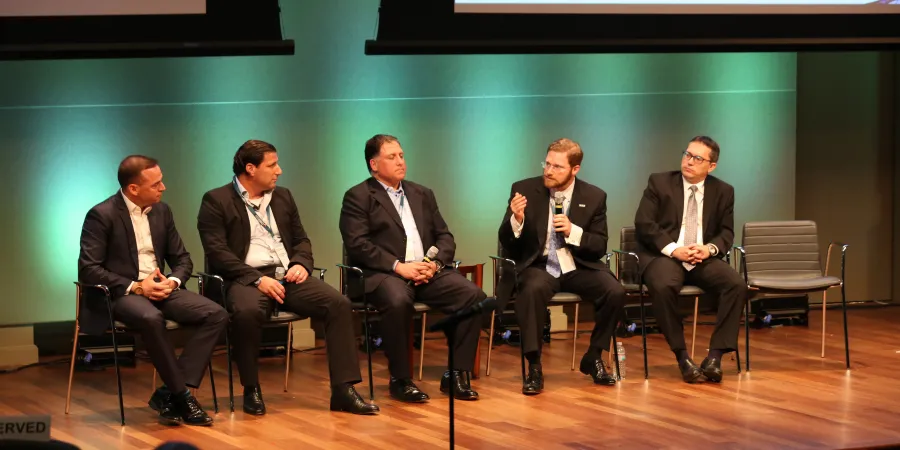Cybertech Fairfax: Working Together to Face the Global Cyber Threats
Hundreds of people participated in Cybertech Fairfax, a thought-provoking conference and exhibition on global cyber threats, solutions, innovations and technologies, organized by Cybertech Global Events and the Fairfax County Economic Development Authority
IsraelDefense
| 14/06/2017
Some 600 people and 30 companies gathered Tuesday at Capital One headquarters in Fairfax, Virginia, to meet technology company executives, startups, government officials and contractors, investors, leading academics and legal, media and marketing professionals changing the global cyber landscape.
During the conference, high-profile speakers and panelists focused on the global cyber threat, and strategies and solutions that meet the diverse challenges for a wide range of sectors including finance, transportation, utilities, defense, communication and government, to protect operations, infrastructure and people.
Conference themes included securing global commerce and national defense, improving infrastructure security and smart city, protecting mega events, strengthening banking and financial sector operations, and investing in cybersecurity.
The opening keynote address was given by Michael Chertoff, Former Secretary of the US Department of Homeland Security, Co-Founder & Executive Chairman of the Chertoff Group.
Chertoff compared proper internet security to the human body, which, generally speaking, does a good job of keeping disease from attacking. But, like the body, the internet requires immunizations to ward off disease – and constantly updated immunizations to keep pace with new virus strains.
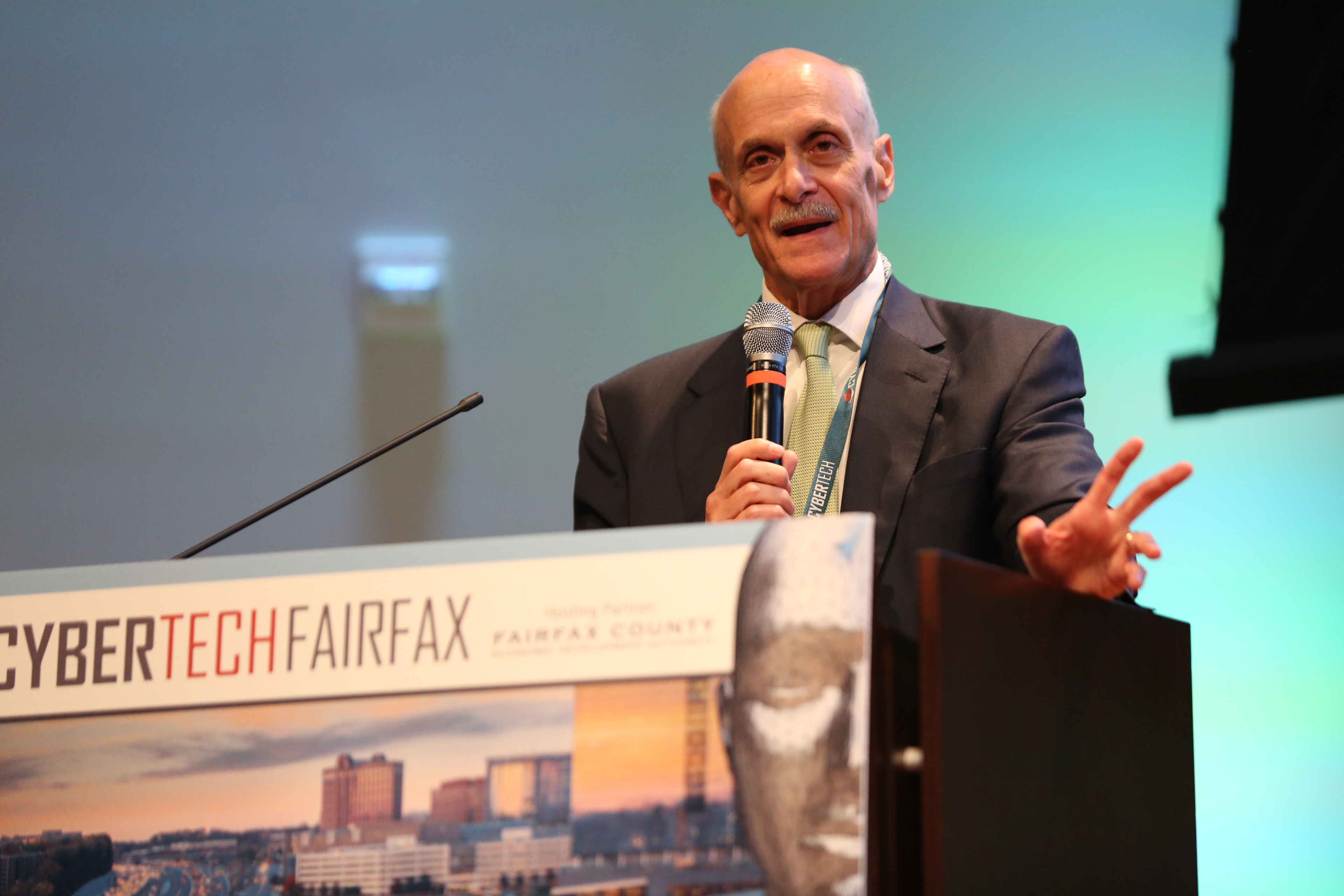
"The problem is not the initial breach," he said. "It's about having the adversary in your network, going around to steal credentials and do reconnaissance and, finally, executing damaging consequences on the network. But, at each stage of attack, we have the ability to deploy and exercise an immune system to stop and mitigate the damage."
"Anybody who tells you you're going to avoid ever getting hacked," Chertoff added, "is either blowing smoke at you or basically telling you to get offline and go back to using paper and pencil, because you can't stop every hacker."
"If I could deliver one message: It's important to set people's expectations about security so that they feel empowered to deal with the threat and not as if they are victims of something that is beyond their control," Chertoff said.
"There are solutions. Technology is not just about technology. It's about people, the police, the governments ... the understanding of what the key assets are and then the ability to train people and provide them with technology to execute the plan. [But] if you think you can simply buy something, put it on the network and it's problem solved, you're kidding yourself."
Dr. Douglas Maughan of the Homeland Security Advanced Research Projects Agency (HSARPA) and the Department of Homeland Security's Science and Technology Directorate, described his organization's missions. Fostering development of cybersecurity solutions figures prominently among those missions. Maughan reviewed a wide range of programs designed to serve that mission, and he encouraged industry engagement.
He was particularly concerned to emphasize that the DHS S&T cybersecurity portfolio is not a basic research portfolio. It's strongly use-inspired, and has a very tight focus on transition, with many mechanisms in place to foster moving technology not just to users, but to markets. They have worked to develop such transition opportunities through both interagency cooperation and extensive public-private partnerships.
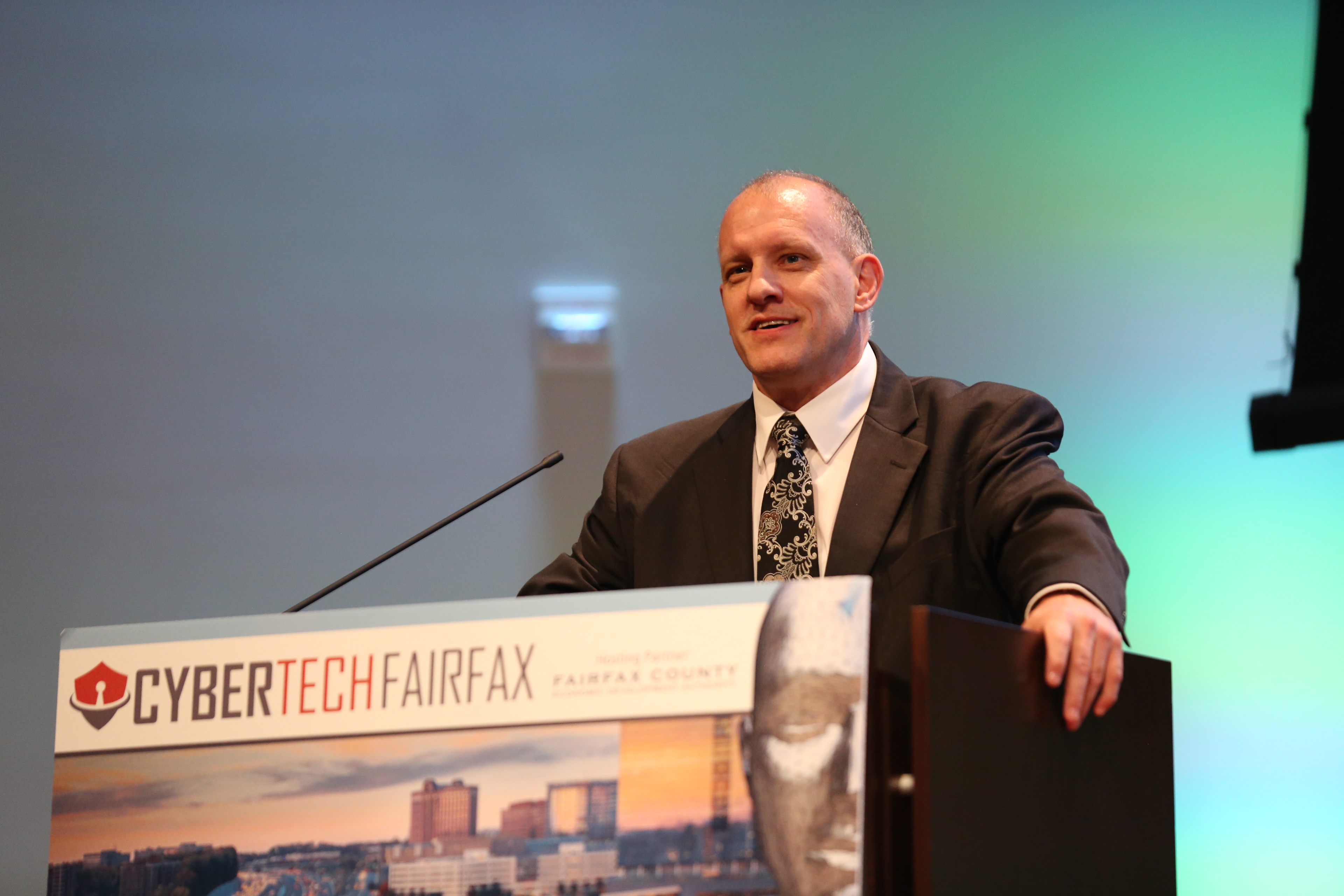
Dr. Maughan's address was followed by a special CISO Panel, moderated by Mr. Michael Dent, CISO of Fairfax County, and participated by Dr. Michael Papay, VP & CISO at Northrop Grumman; Mr. Michael Johnson, SVP & CISO at Capital One; and Mr. Kevin James, CISO of the Metropolitan Washington Airports Authority.
The CISO panel expressed clear consensus on the value of cooperation and collaboration in cybersecurity, even among businesses that in the ordinary course of things compete. The CISOs agreed that cybersecurity should not be a competitive differentiator.
Michael Dent said one of the greatest challenges his department faces daily comes from email. "Trying to decipher what's a good email vs. what's a bad email – that's become our Achilles' heel," Dent said. "Our employees only try to serve and help. But they're clicking on emails they think are from citizens they and they end up being a malicious email."
Nevertheless, Dent knows he couldn't be physically positioned in a better place to tackle cybersecurity issues. "You have to look at this county and where we are with regard to the Route 66 corridor," he said. "Companies are coming in and seeing the value of being here, as close as we are to the nation's capital."
"We don't mince words. We look for the best, but we're also very keen on being innovative," Dent said. "I'm a very big believer in the startup companies that are out there for cyber. They've got smart kids coming in and designing software that no one ever thought would be possible. Artificial intelligence and machine learning is huge and we're trying to stay on that path."
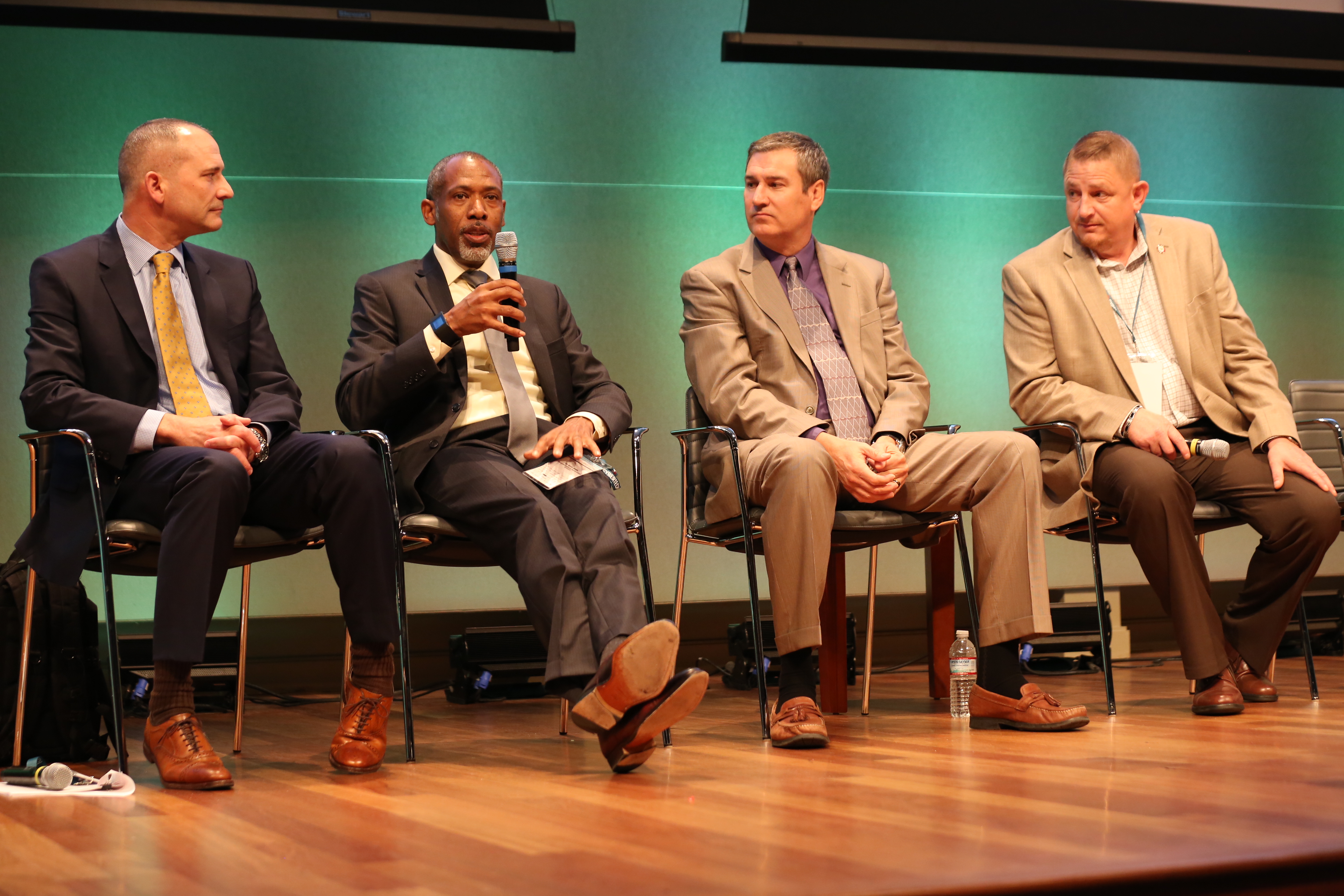

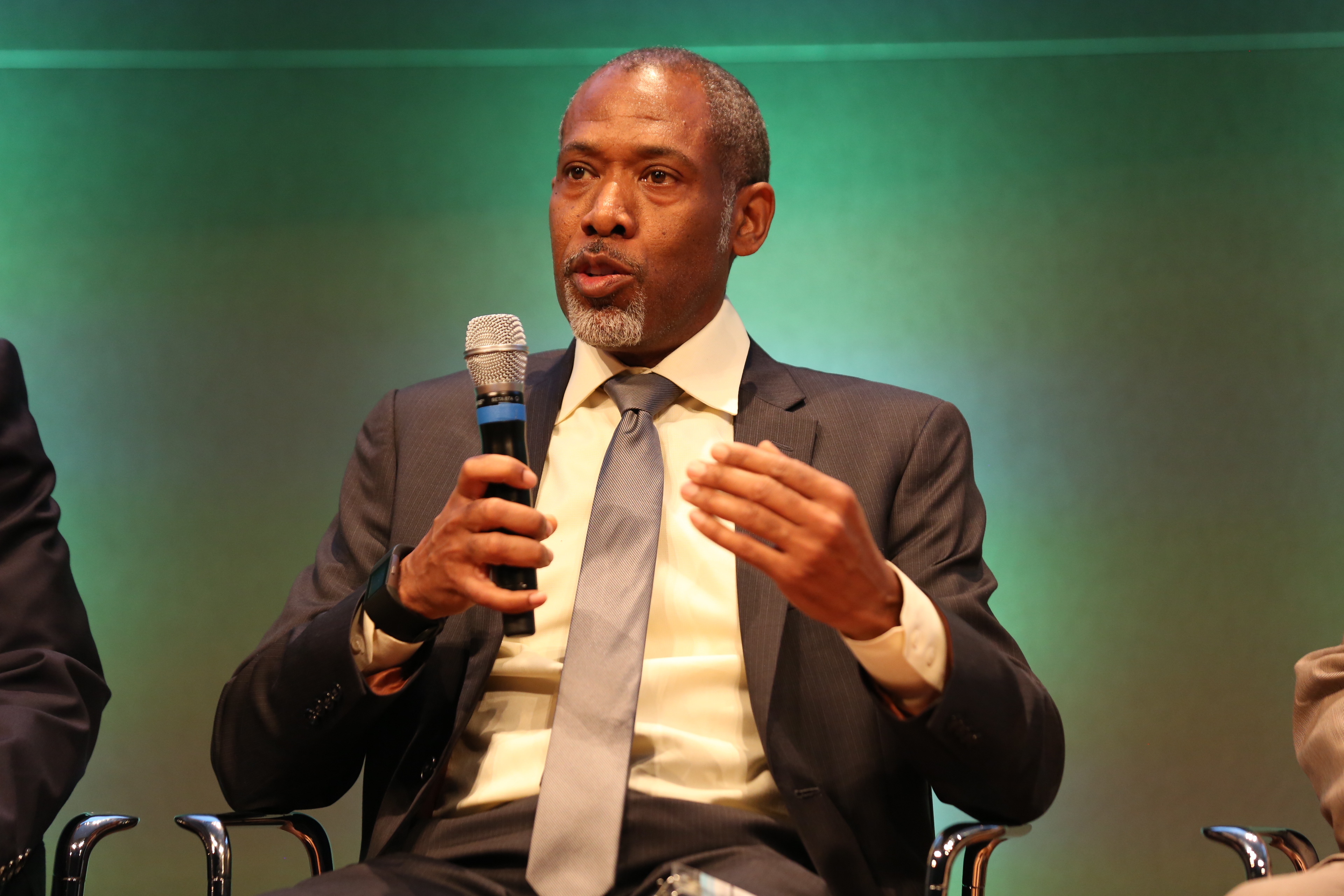
Another panel, moderated by Amir Rapaport, Founder & Editor-in-Chief of Cybertech, focused on "securing global commerce and national defense." The panelists included Mr. Amir Becker, Cyber Attaché of the Israel National Cyber Directorate in Washington DC; Mr. Seth Abrams, VP & CTO of CSRA's Homeland Security Group; Mr. Adam Bosnian, Executive VP at CyberArk; Mr. Omri Timianker, Founder of I-OTT Ltd. & Cobwebs Technologies; and Mr. Yair Solow, CEO of CyGov.
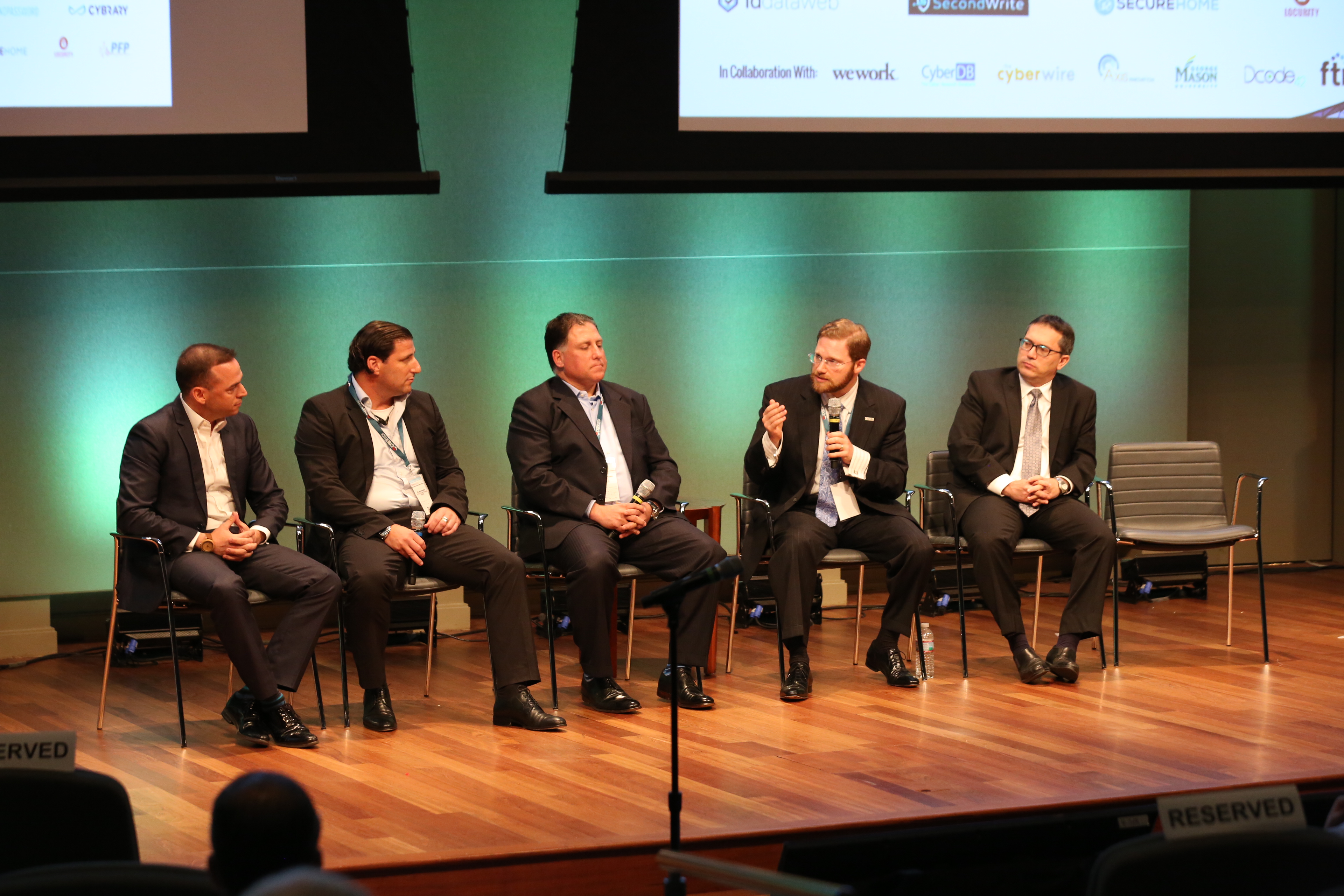
During the "Infrastructure Security and Smart City" panel, the experts were asked about the role that innovation will play in our cyber-challenged society. Emily Early, Director Office of Strategy, Policy, and Plans National Programs Directorate in the US Department of Homeland Security, stated that the government wants to lead innovation.
While the government may not be developing new technology themselves, they want to be at the table with technological innovators who are creating new systems to combat these threats. Emily believed that the WannaCry attack was due to the fact that the technology in affected computer systems was outdated. This belief further reinforces the repeated statement throughout the conference that there is a great need to keep systems updated and "immune" in order to stay ahead of hackers.
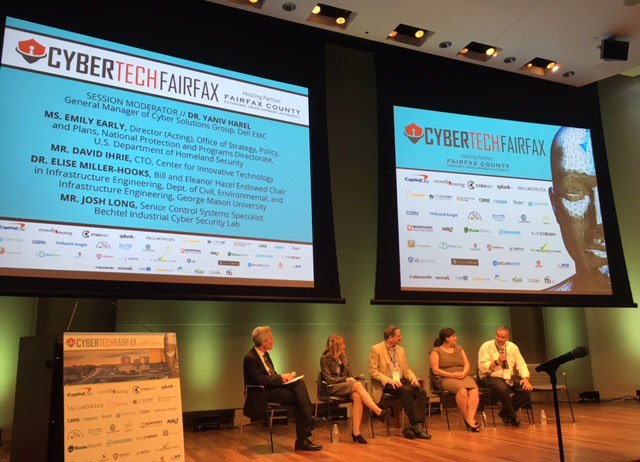
Dr. Elise Miller-Hooks believes that "a system is more resilient when we are innovative." Dr. Miller-Hooks is the Bill and Eleanor Hazel Endowed Chair in Infrastructure Engineering, Dept. of Civil, Environmental and Infrastructure Engineering at George Mason University. She noted that there needs to be a balance between innovation and collaboration in order to meet the needs of our infrastructure for cybersecurity.
"I’ve always seen disruption as an opportunity," stated David Ihrie, CTO for the Center for Innovative Technology. He expressed his opinion that with the new digital divide, there needs to be more OT and smarter digital deployments. He feels that we need to deploy this innovative technology in a new way.
The conference also emphasized on innovation, with a startup competition and a Startup Pavilion where cutting-edge companies displayed the latest advances.
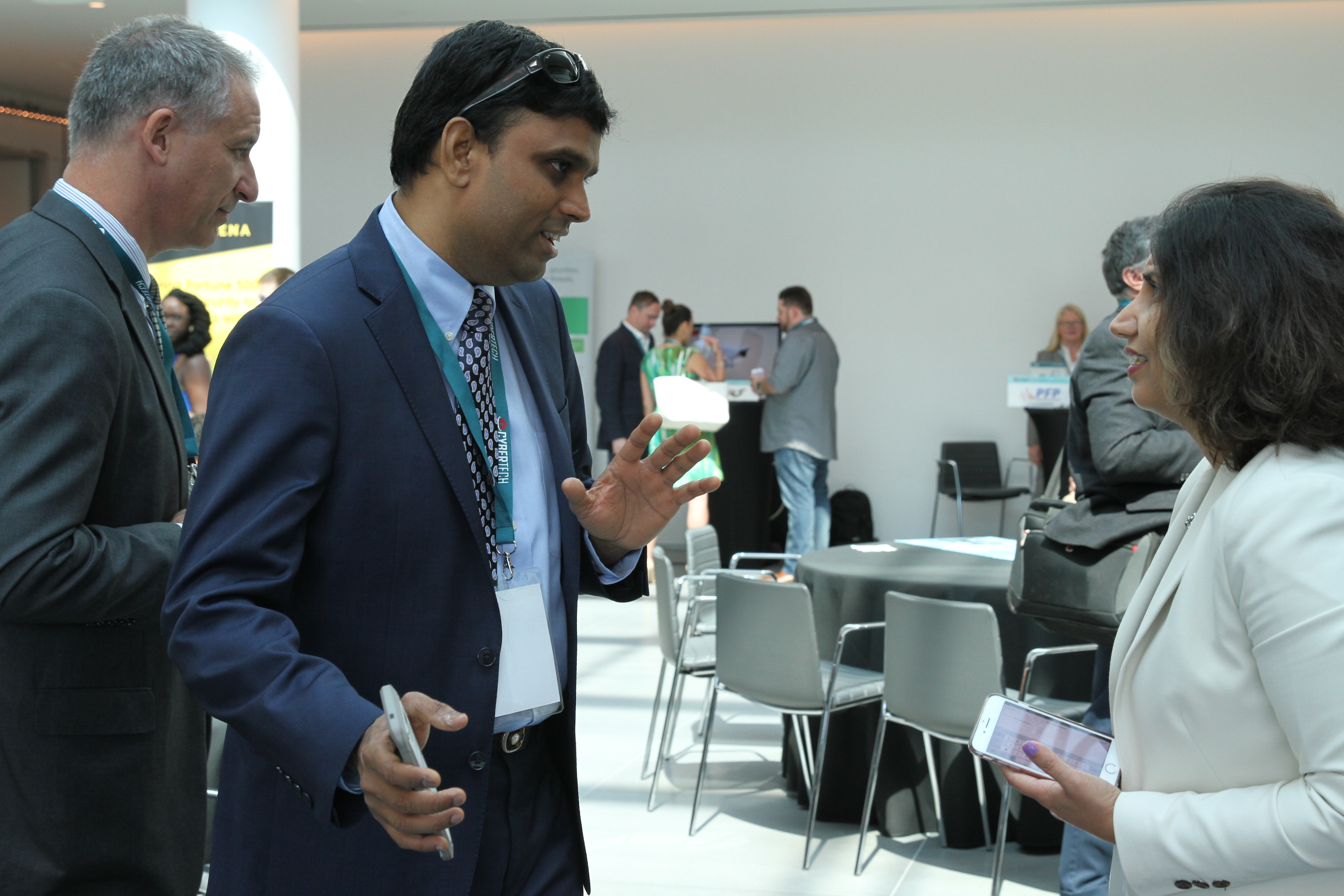
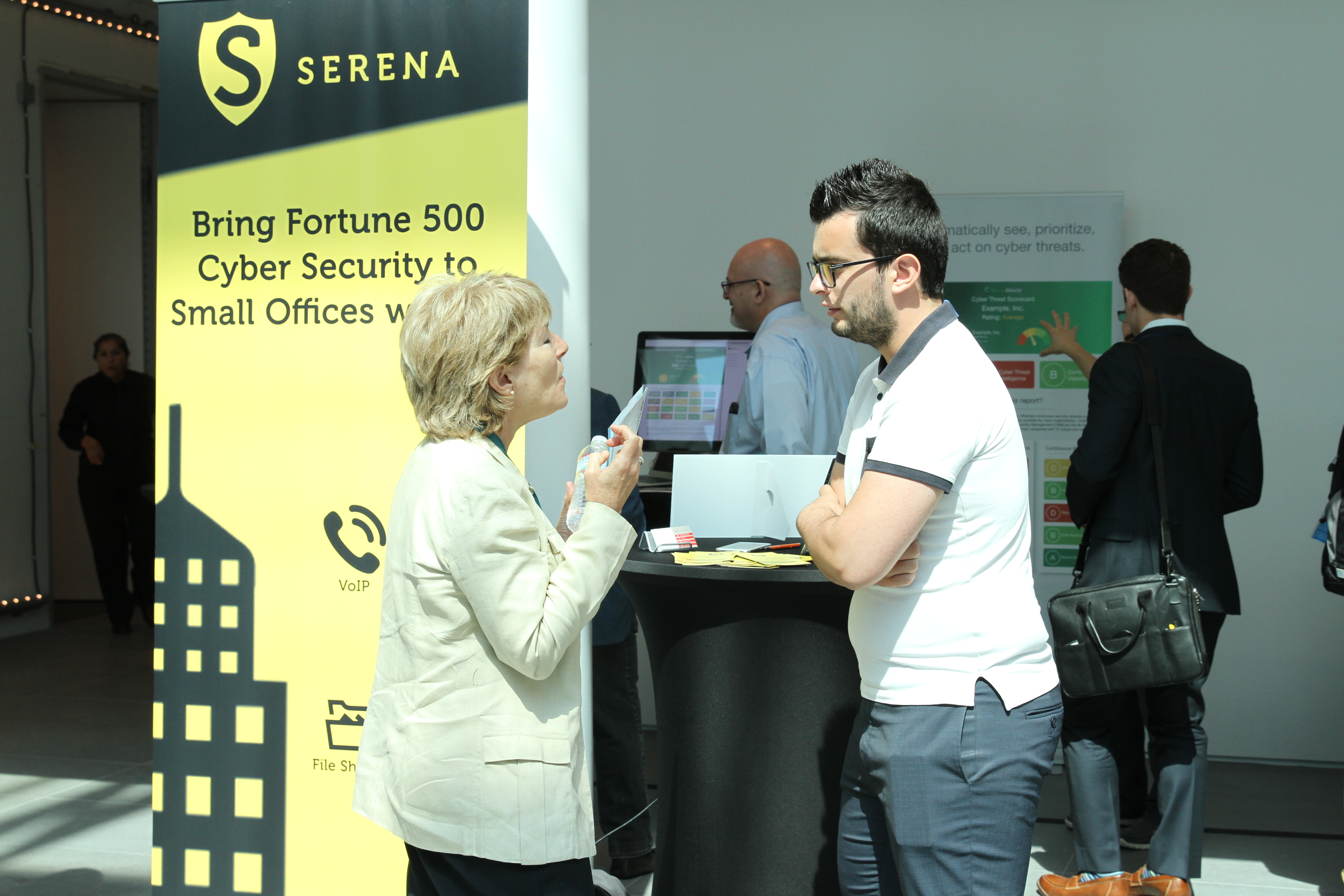
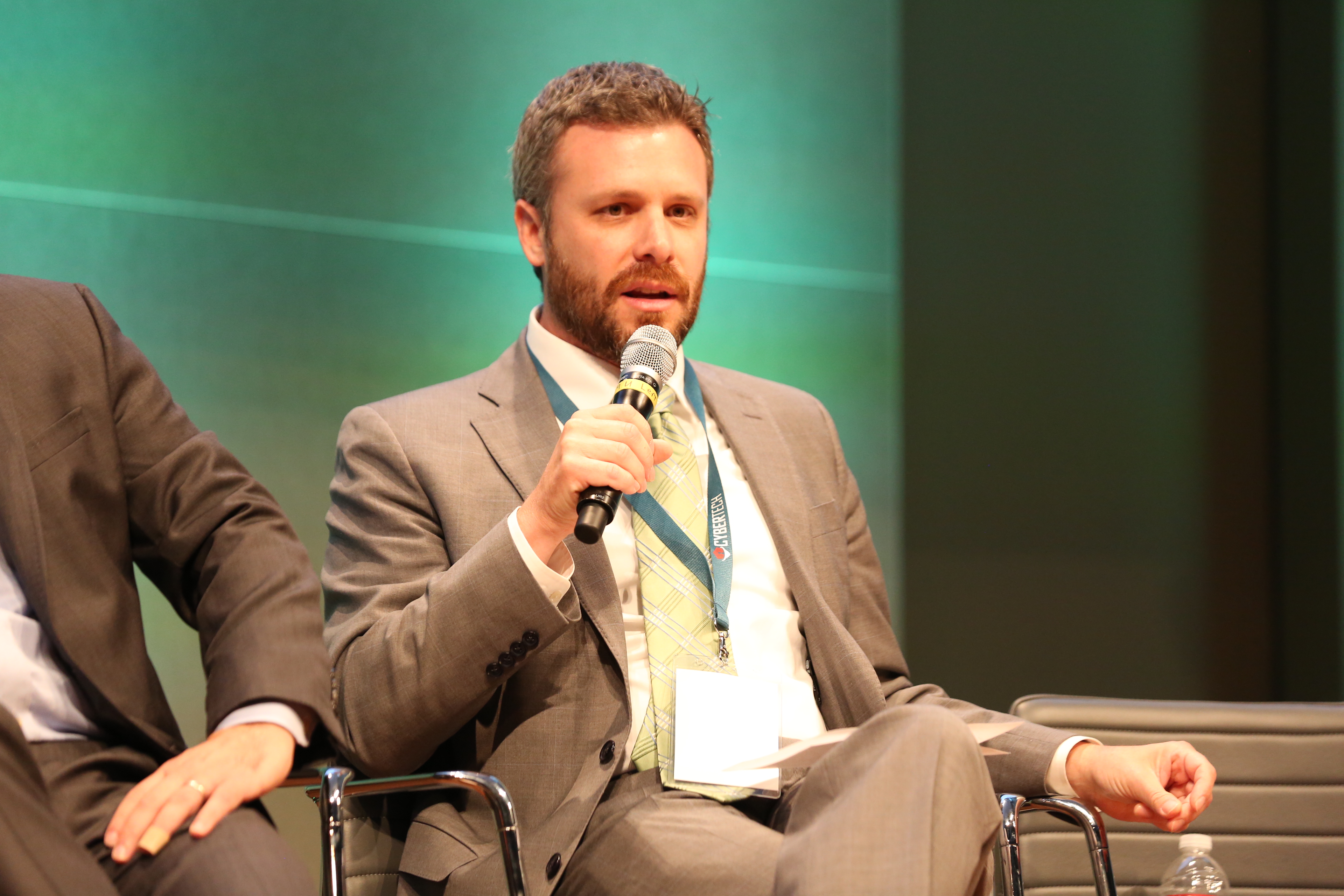
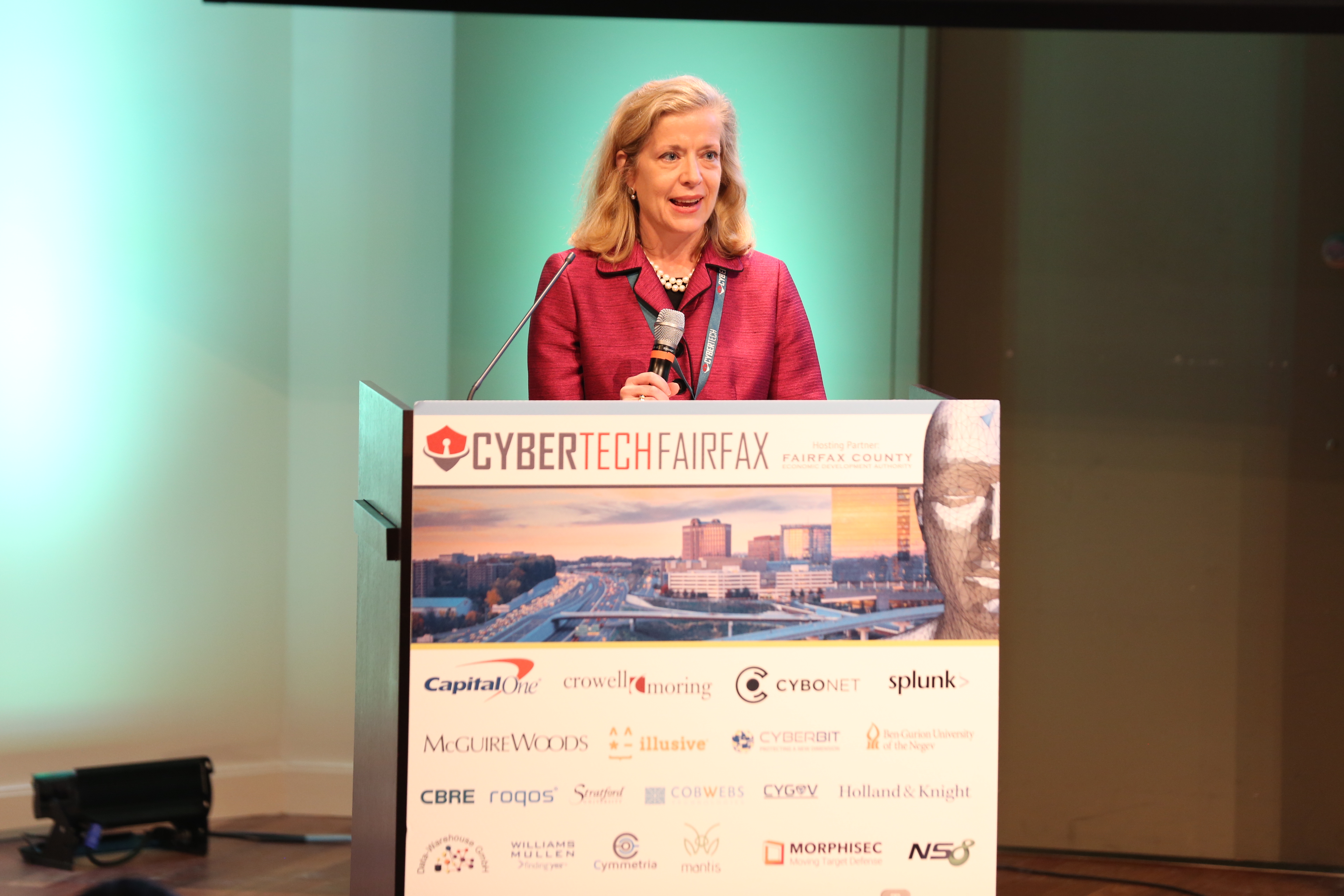
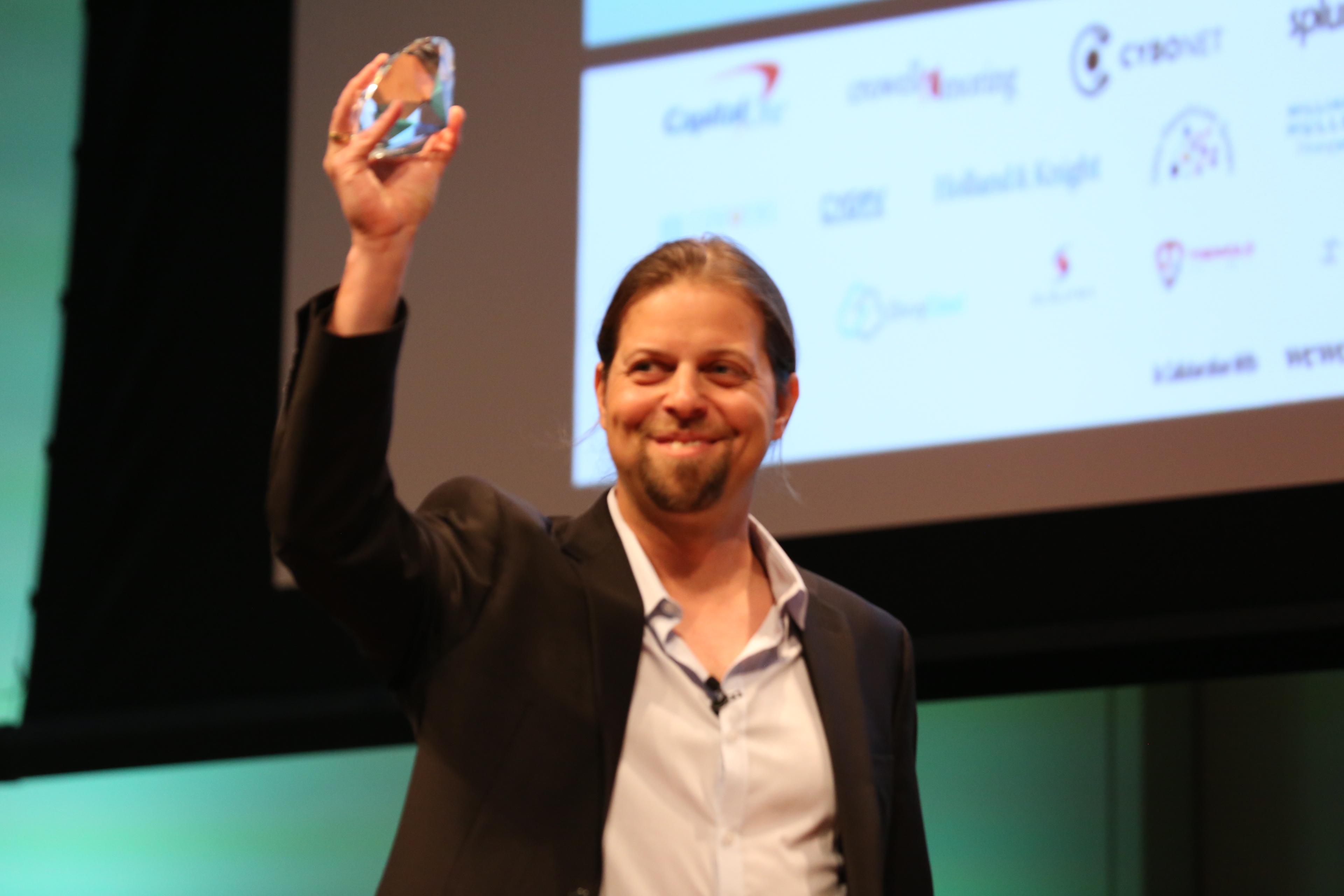
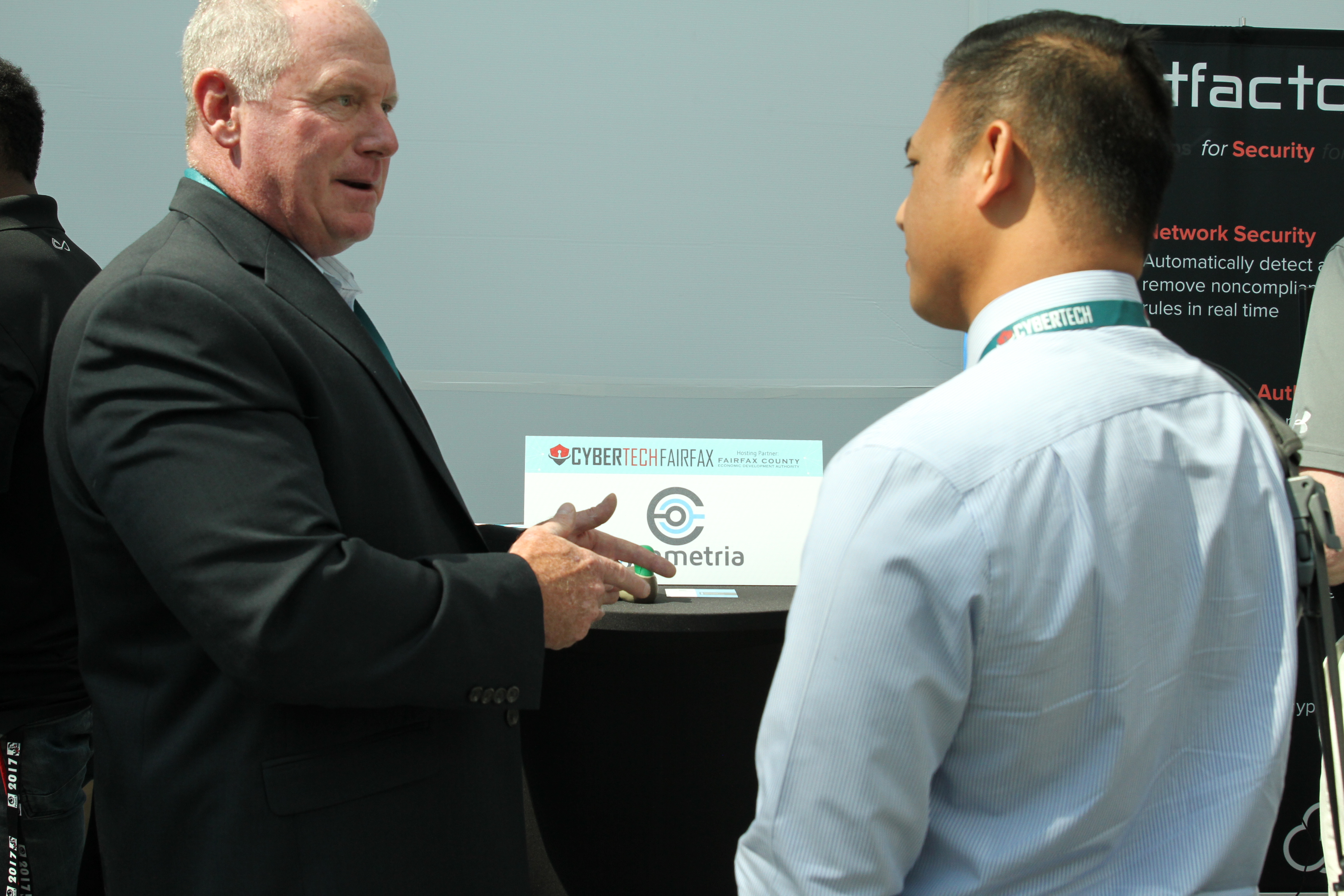
Hundreds of people participated in Cybertech Fairfax, a thought-provoking conference and exhibition on global cyber threats, solutions, innovations and technologies, organized by Cybertech Global Events and the Fairfax County Economic Development Authority
Some 600 people and 30 companies gathered Tuesday at Capital One headquarters in Fairfax, Virginia, to meet technology company executives, startups, government officials and contractors, investors, leading academics and legal, media and marketing professionals changing the global cyber landscape.
During the conference, high-profile speakers and panelists focused on the global cyber threat, and strategies and solutions that meet the diverse challenges for a wide range of sectors including finance, transportation, utilities, defense, communication and government, to protect operations, infrastructure and people.
Conference themes included securing global commerce and national defense, improving infrastructure security and smart city, protecting mega events, strengthening banking and financial sector operations, and investing in cybersecurity.
The opening keynote address was given by Michael Chertoff, Former Secretary of the US Department of Homeland Security, Co-Founder & Executive Chairman of the Chertoff Group.
Chertoff compared proper internet security to the human body, which, generally speaking, does a good job of keeping disease from attacking. But, like the body, the internet requires immunizations to ward off disease – and constantly updated immunizations to keep pace with new virus strains.
"The problem is not the initial breach," he said. "It's about having the adversary in your network, going around to steal credentials and do reconnaissance and, finally, executing damaging consequences on the network. But, at each stage of attack, we have the ability to deploy and exercise an immune system to stop and mitigate the damage."
"Anybody who tells you you're going to avoid ever getting hacked," Chertoff added, "is either blowing smoke at you or basically telling you to get offline and go back to using paper and pencil, because you can't stop every hacker."
"If I could deliver one message: It's important to set people's expectations about security so that they feel empowered to deal with the threat and not as if they are victims of something that is beyond their control," Chertoff said.
"There are solutions. Technology is not just about technology. It's about people, the police, the governments ... the understanding of what the key assets are and then the ability to train people and provide them with technology to execute the plan. [But] if you think you can simply buy something, put it on the network and it's problem solved, you're kidding yourself."
Dr. Douglas Maughan of the Homeland Security Advanced Research Projects Agency (HSARPA) and the Department of Homeland Security's Science and Technology Directorate, described his organization's missions. Fostering development of cybersecurity solutions figures prominently among those missions. Maughan reviewed a wide range of programs designed to serve that mission, and he encouraged industry engagement.
He was particularly concerned to emphasize that the DHS S&T cybersecurity portfolio is not a basic research portfolio. It's strongly use-inspired, and has a very tight focus on transition, with many mechanisms in place to foster moving technology not just to users, but to markets. They have worked to develop such transition opportunities through both interagency cooperation and extensive public-private partnerships.
Dr. Maughan's address was followed by a special CISO Panel, moderated by Mr. Michael Dent, CISO of Fairfax County, and participated by Dr. Michael Papay, VP & CISO at Northrop Grumman; Mr. Michael Johnson, SVP & CISO at Capital One; and Mr. Kevin James, CISO of the Metropolitan Washington Airports Authority.
The CISO panel expressed clear consensus on the value of cooperation and collaboration in cybersecurity, even among businesses that in the ordinary course of things compete. The CISOs agreed that cybersecurity should not be a competitive differentiator.
Michael Dent said one of the greatest challenges his department faces daily comes from email. "Trying to decipher what's a good email vs. what's a bad email – that's become our Achilles' heel," Dent said. "Our employees only try to serve and help. But they're clicking on emails they think are from citizens they and they end up being a malicious email."
Nevertheless, Dent knows he couldn't be physically positioned in a better place to tackle cybersecurity issues. "You have to look at this county and where we are with regard to the Route 66 corridor," he said. "Companies are coming in and seeing the value of being here, as close as we are to the nation's capital."
"We don't mince words. We look for the best, but we're also very keen on being innovative," Dent said. "I'm a very big believer in the startup companies that are out there for cyber. They've got smart kids coming in and designing software that no one ever thought would be possible. Artificial intelligence and machine learning is huge and we're trying to stay on that path."
Another panel, moderated by Amir Rapaport, Founder & Editor-in-Chief of Cybertech, focused on "securing global commerce and national defense." The panelists included Mr. Amir Becker, Cyber Attaché of the Israel National Cyber Directorate in Washington DC; Mr. Seth Abrams, VP & CTO of CSRA's Homeland Security Group; Mr. Adam Bosnian, Executive VP at CyberArk; Mr. Omri Timianker, Founder of I-OTT Ltd. & Cobwebs Technologies; and Mr. Yair Solow, CEO of CyGov.
During the "Infrastructure Security and Smart City" panel, the experts were asked about the role that innovation will play in our cyber-challenged society. Emily Early, Director Office of Strategy, Policy, and Plans National Programs Directorate in the US Department of Homeland Security, stated that the government wants to lead innovation.
While the government may not be developing new technology themselves, they want to be at the table with technological innovators who are creating new systems to combat these threats. Emily believed that the WannaCry attack was due to the fact that the technology in affected computer systems was outdated. This belief further reinforces the repeated statement throughout the conference that there is a great need to keep systems updated and "immune" in order to stay ahead of hackers.

Dr. Elise Miller-Hooks believes that "a system is more resilient when we are innovative." Dr. Miller-Hooks is the Bill and Eleanor Hazel Endowed Chair in Infrastructure Engineering, Dept. of Civil, Environmental and Infrastructure Engineering at George Mason University. She noted that there needs to be a balance between innovation and collaboration in order to meet the needs of our infrastructure for cybersecurity.
"I’ve always seen disruption as an opportunity," stated David Ihrie, CTO for the Center for Innovative Technology. He expressed his opinion that with the new digital divide, there needs to be more OT and smarter digital deployments. He feels that we need to deploy this innovative technology in a new way.
The conference also emphasized on innovation, with a startup competition and a Startup Pavilion where cutting-edge companies displayed the latest advances.

